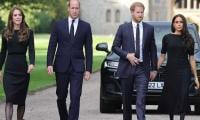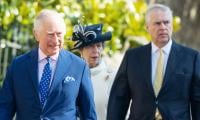Court told UK spies ‘assisting’ CIA to murder Pakistanis
LONDON: The High Court has been told that the UK intelligence officials could be “encouraging or ass
By Murtaza Ali Shah
October 24, 2012
LONDON: The High Court has been told that the UK intelligence officials could be “encouraging or assisting murder” and the commission of war crimes by providing assistance for then CIA drone strikes in Pakistani tribal areas.
The two day hearing opened on Tuesday at the Royal Courts of Justice here on the application by Pakistani national from Miranshah, North Waziristan Agency (NWA), Noor Khan, who has challenged UK government’s support for the secret drone strikes. Legal action charity Reprieve is helping Noor Khan.
His statement was described as “very moving” by Lord Justice Moses who is hearing the case along with Mr Justice Simon. The two will decide whether the application should go to a full hearing. It is believed that the UK intelligence services provide intelligence to support the CIA’s programme of drone strikes, which has resulted in the deaths of hundreds of civilians and has had little impact on targeting militants. Noor Khan’s statement made available to the court and media says that due to fear of drones “the tribal elders are now afraid to gather together in jirgas as has been the custom for more than one century. We are scared that if we get together we might be targeted again. “The mothers and wives plead with the men to not congregate together for fear that they will be targeted. They do not want to lose any more of their husbands, sons, brothers, and nephews.”
Khan’s statement adds: “The younger generation has been especially affected. The children almost all suffer from mental illness and live in constant fear of the drone. The children no longer attend school and because of the constant humming of the drones they’ve become mental patients. My generation fears that because the younger generation is not getting an education they will become a burden on us and stifle the growth that we could have achieved as a people.”
The Pakistani national, 27, wants a declaration that the UK government’s alleged policy of passing on information on the location of individuals to the CIA is unlawful but lawyers for Foreign Secretary William Hague are urging the court to block the application.
The lawyers for the government argue that the case raises “issues relating to sovereign foreign states that cannot be determined by the English courts.”
They also say that adjudicating on Khan’s claim would plainly have a “significant impact” on the conduct of the UK’s relations with the US and Pakistan in an “acutely controversial, sensitive and important” context, and also impact on relations between the US and Pakistan.
Martin Chamberlain, appearing for Khan, said the US had increased the frequency of drone attacks and Khan “fears for his life and the lives of his family and community.”
He said a Sunday Times article in July 2010 said that British spy agencies were pinpointing the hiding places of al-Qaeda and Taliban chiefs for controversial “targeted killings” by drones.
It also reported that GCHQ, the UK’s top secret communications agency, was using telephone intercepts to provide the Americans with “locational intelligence” on leading militants in Afghanistan and Pakistan.
Chamberlain urged the court that Khan was entitled to a “declaration that any UK intelligence officers who passed on information to the Americans might be encouraging or assisting murder.” Reprieve legal director Kat Craig said in a statement: “Mr Khan’s evidence highlights the terrible toll the CIA’s illegal programme of drone strikes is taking on ordinary people across Northwest Pakistan. The British people have a right to know whether their own government is providing support to this devastating and counter-productive campaign.”
The two day hearing opened on Tuesday at the Royal Courts of Justice here on the application by Pakistani national from Miranshah, North Waziristan Agency (NWA), Noor Khan, who has challenged UK government’s support for the secret drone strikes. Legal action charity Reprieve is helping Noor Khan.
His statement was described as “very moving” by Lord Justice Moses who is hearing the case along with Mr Justice Simon. The two will decide whether the application should go to a full hearing. It is believed that the UK intelligence services provide intelligence to support the CIA’s programme of drone strikes, which has resulted in the deaths of hundreds of civilians and has had little impact on targeting militants. Noor Khan’s statement made available to the court and media says that due to fear of drones “the tribal elders are now afraid to gather together in jirgas as has been the custom for more than one century. We are scared that if we get together we might be targeted again. “The mothers and wives plead with the men to not congregate together for fear that they will be targeted. They do not want to lose any more of their husbands, sons, brothers, and nephews.”
Khan’s statement adds: “The younger generation has been especially affected. The children almost all suffer from mental illness and live in constant fear of the drone. The children no longer attend school and because of the constant humming of the drones they’ve become mental patients. My generation fears that because the younger generation is not getting an education they will become a burden on us and stifle the growth that we could have achieved as a people.”
The Pakistani national, 27, wants a declaration that the UK government’s alleged policy of passing on information on the location of individuals to the CIA is unlawful but lawyers for Foreign Secretary William Hague are urging the court to block the application.
The lawyers for the government argue that the case raises “issues relating to sovereign foreign states that cannot be determined by the English courts.”
They also say that adjudicating on Khan’s claim would plainly have a “significant impact” on the conduct of the UK’s relations with the US and Pakistan in an “acutely controversial, sensitive and important” context, and also impact on relations between the US and Pakistan.
Martin Chamberlain, appearing for Khan, said the US had increased the frequency of drone attacks and Khan “fears for his life and the lives of his family and community.”
He said a Sunday Times article in July 2010 said that British spy agencies were pinpointing the hiding places of al-Qaeda and Taliban chiefs for controversial “targeted killings” by drones.
It also reported that GCHQ, the UK’s top secret communications agency, was using telephone intercepts to provide the Americans with “locational intelligence” on leading militants in Afghanistan and Pakistan.
Chamberlain urged the court that Khan was entitled to a “declaration that any UK intelligence officers who passed on information to the Americans might be encouraging or assisting murder.” Reprieve legal director Kat Craig said in a statement: “Mr Khan’s evidence highlights the terrible toll the CIA’s illegal programme of drone strikes is taking on ordinary people across Northwest Pakistan. The British people have a right to know whether their own government is providing support to this devastating and counter-productive campaign.”
-
 China Cuts Anti-dumping Duties On Canadian Oil Imports After Final Trade Decision
China Cuts Anti-dumping Duties On Canadian Oil Imports After Final Trade Decision -
 Prince Harry, Meghan Markle Make Major Change To Strategy To Please Royal Family
Prince Harry, Meghan Markle Make Major Change To Strategy To Please Royal Family -
 Chester Bennington’s Mental Health Story And Lasting Legacy
Chester Bennington’s Mental Health Story And Lasting Legacy -
 John Cusack Gears Up To Give Fans Exciting Surprise On Late-night Television
John Cusack Gears Up To Give Fans Exciting Surprise On Late-night Television -
 Yerin Ha Opens Up About Shocking Diagnosis Post ‘Bridgerton’ Season 4
Yerin Ha Opens Up About Shocking Diagnosis Post ‘Bridgerton’ Season 4 -
 Meghan Markle, Harry Leave King Charles, Prince William Furious With Latest Move
Meghan Markle, Harry Leave King Charles, Prince William Furious With Latest Move -
 NASA Announces New Artemis Moon Mission Aimed At Expanding Astronauts’ Exploration Efforts
NASA Announces New Artemis Moon Mission Aimed At Expanding Astronauts’ Exploration Efforts -
 Everything To Know About Justin Bieber's Facial Paralysis
Everything To Know About Justin Bieber's Facial Paralysis -
 Morgan Stanley Predicts AI To Replace Tasks Not Workers
Morgan Stanley Predicts AI To Replace Tasks Not Workers -
 Anthropic Dario Amodei Calls White House Response ‘retaliatory’ In AI Safety Dispute
Anthropic Dario Amodei Calls White House Response ‘retaliatory’ In AI Safety Dispute -
 Tia Mowry Breaks Silence On Angelina Jolie Asking 'unbelievably' Personal Question: 'Wilder'
Tia Mowry Breaks Silence On Angelina Jolie Asking 'unbelievably' Personal Question: 'Wilder' -
 Savannah Guthrie Speculations 'sadly' Coming True About Mother Nancy
Savannah Guthrie Speculations 'sadly' Coming True About Mother Nancy -
 Trump Administration Warns Of Slow Payouts For Tariff Refunds Amid Intensifying Trade Disputes
Trump Administration Warns Of Slow Payouts For Tariff Refunds Amid Intensifying Trade Disputes -
 Princess Beatrice 'far From Comfortable' After Father Andrew's Arrest
Princess Beatrice 'far From Comfortable' After Father Andrew's Arrest -
 Sarah Ferguson’s Dual Cancer Journey
Sarah Ferguson’s Dual Cancer Journey -
 GTA 6 Security: Rockstar Blocks Leaks Ahead Of Launch
GTA 6 Security: Rockstar Blocks Leaks Ahead Of Launch



